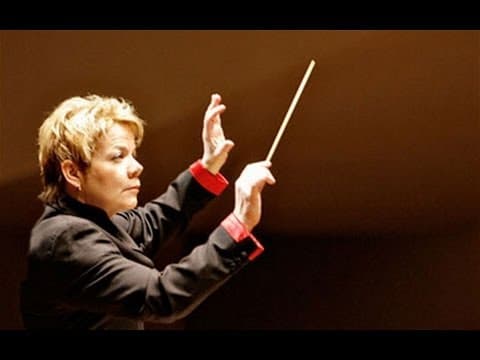Baltimore Symphony loses its critic
mainWhen Tim Smith announced he was stepping down as music critic of the Baltimore Sun after 19 years, there was some hope that a civilised city might appoint a successor.
Not so.
The Sun told MusicalAmerica last night that ‘We will continue to cover music and theater developments in a way that best serves our readers’.
Meaning no critic.
The Baltimore Symphony, in the throes of two existential crises, will lack informed reporting on the spot and its concerts will go unreviewed, which is surely the path to oblivion.







People expect old critics to retire,
They do not really mourn old critics.
Old critics are different. People look
At them with eyes that wonder when…
People watch with unshocked eyes;
But the old critic knows when an old critic retires.
“I have supported the Baltimore Philarmonic for years. These days, it’s just a boom box and a guy in a crab costume. He gets shot out of a cannon at Ravens games. The city may not be thriving.” Diana Jessup, 30 Rock
pops concert?
Did you really ask a serious question about a quote from 30 Rock?
Tim has been one of the most respected music journalists in the business. His knowledge and expertise will be sorely missed. A bright light on the Baltimore musical scene has been dimmed.
OP: “…there was some hope that a civilised city might appoint a successor”
The “city” has nothing to do with it. If by “city” you meant “Baltimore’s largest newspaper,” please understand that 1) the Baltimore Sun, like many other “local” major newspapers, is owned by the Chicago-based Tribune company and 2) the Tribune complex, like many other media companies, has elected to diminish or eliminate arts criticism altogether. This is a global trend. It’s nothing to do with Baltimore.
That said, I agree that the presence or absence of knowledgeable arts writers makes a difference for local arts groups, from the local art museum to a world-class orchestra that makes its home in the community.
My “local” newspaper is the Hartford (CT) Courant, also owned by the Tribune. They used to have some really fine arts critics (classical, dance, opera, fine art, etc.), and offered thoughtful, reliable coverage both before and after events (before-event coverage is perhaps more important than reviews!). Several years ago they eliminated the critics. For classical music, they engaged an occasional freelancer whose “reviews” consisted of recycled info from the program notes and effusive praise for every performer. It was worthless. Then the Courant announced that they were going to do away with all reviews (and they did), but also said they would replace that with pre-event coverage (they haven’t done so).
So don’t blame “the city.”
But oh, this is rich. I read the story to which you linked in Musical America, in which Tim Smith offers his perspective on the challenges of writing about the arts in mainstream media, including, “Arts stories never seem to drive enough web traffic unless there’s a juicy scandal involved.” And there’s the operating model for Slipped Disc, eh?
I enjoy Bachtrack.com and the Boston Musical Intelligencer (both online) for reviews and news. What other sites do any of you read regularly for actual news and reviews from the classical music word?
In New York we have an excellent website New York Classical Review which has been doing a terrific job
They charge performers for coverage, which is totally unacceptable practice.
The fact that so many critics write unedited blogs, giving away content, removes the need for their being published. Even though their blogs are unreadable.
None of this would matter if we had serious arts magazines in this country, which we would have if professionals in the field would support them, as well as audience members. There was an admittedly amateurish Philadelphia MusicMakers, which never achieved more than 500 subscribers, and ultimately failed for lack of support. Many of the problems musicians face is their own fault.
As someone who both performs and writes about music, I hope I can add some meaningful perspective. This opening comment comes close to accurately assessing the matter. You have to remember that the state of metropolitan dailies in the US, outside of the national brands like the New York Times, Washington Post and Wall Street Journal, is a lot like classical music itself. Both fields are undergoing significant challenges while seeking to stabilize and then grow their audiences. And the midsize newspapers have further sunk themselves, in my opinion, by showing their desperation with horrible online presences laden with ads and popups that make you want to run away as fast as possible.
This is one of those subjects that cause people to scold and finger-wag to no effect at all. If a Tim Smith observes that straight coverage of serious culture doesn’t drive the web traffic that a traditional newspaper needs to see, then we should try to see why that is rather than yell at a symptom. (I feel much the same way about endless whining about donations and funding as opposed to the vastly more important subject of putting fannies in the seats, but I digress.) New artists, new approaches, and compelling visions are needed in both fields. Meanwhile, my hat’s off to Tim Smith for the work he did do at the Baltimore Sun. He was one of the best at coverage, and one of the clearest writers, that we have had here in the mid-Atlantic region of the US.
It’s true that Baltimore has a lot more on its plate these days besides its orchestra … as things go down to “The Wire.”
This is happening all over the US. For a while now, Alex Ross’s website has been ruefully keeping track of newspaper music critics being dismissed or demoted or not replaced. Still, there are serious review sites on the internet.
Now if only they could lose its conductor…
And oboe.
As one critic I know has been saying for a few years now, “You’ll miss us when we’re gone.”
As it happens, not all the Baltimore Symphony’s concerts will go unreviewed. At least some of them will be covered in The Washington Post, since the Baltimore Symphony’s second concert venue is Strathmore, right on a Washington Metro line (which makes it easier to get to than the Kennedy Center).
And which will amount to a further marginalization of Baltimore, and more decimation for the city. Instead of meeting the challenges at hand, one sees a gravitation by cultural institutions toward enclaves of elite whites. In the USA, orchestras are suburban art resident in ghettoized cities.
Remember when the Baltimore Symphony financed a position for a young journalist to be embedded with the orchestra? It paid $38,000 per year and was meant to be a sort of training program. There’s an interesting discussion of the program here. Check out the readers’ comments as well since the discussion is interesting. We tend to forget that as a rule music journalists function as boosters for their local orchestra. In the comments I’m critical of that, but once the journalist is gone, we begin to see the problems of not having such voices in the papers. I’m not sure I would write about the situation the same way today.
Sorry, the url mentioned in my above post is this:
https://www.artsjournal.com/realcleararts/2014/04/the-bso-and-arts-journalism-dont-let-this-spread.html
Like most things that newspapers discontinue… investigative reporting, theater reviews, “Nancy”…they probably ascertained that no one was buying the paper to read it and the people who bought the paper for something else weren’t reading it either.
Critics are vastly overrated in their importance. Reporting on cultural events is far more important than one person having a negative/critical opinion on everything. The Minneapolis Tribune once had Will Jones, who wrote a witty column called After Last Night. Now that was good writing, as entertaining as the subject matter. He was followed by a critic with too-little understanding, like so many. News stories and profiles bring in the audiences.
Tim Smith wasn’t just a great critic, but also a great advocate and watchdog for the BSO musicians. Think back to 2004 when the BSO was held hostage by Chairman Phillip English and President James Glicker – 2 nincumpoops who were destroying the BSO with their facist methods and incompetence. It was Tim Smith’s expert sleuthing & reporting that exposed them and finally got them ousted by 2006 – not only from the BSO, but from the music world entirely.
Tim is an excellent critic, but he hasn’t been allowed to review many concerts for the past couple of years. Recently he has been the only “arts” reporter, and also had to do restaurant reviews. The Sun has systematically driven out almost all their veteran (higher-priced) reporters.
Jean Sibelius said something like, there are no monuments built to honor critics. He was correct